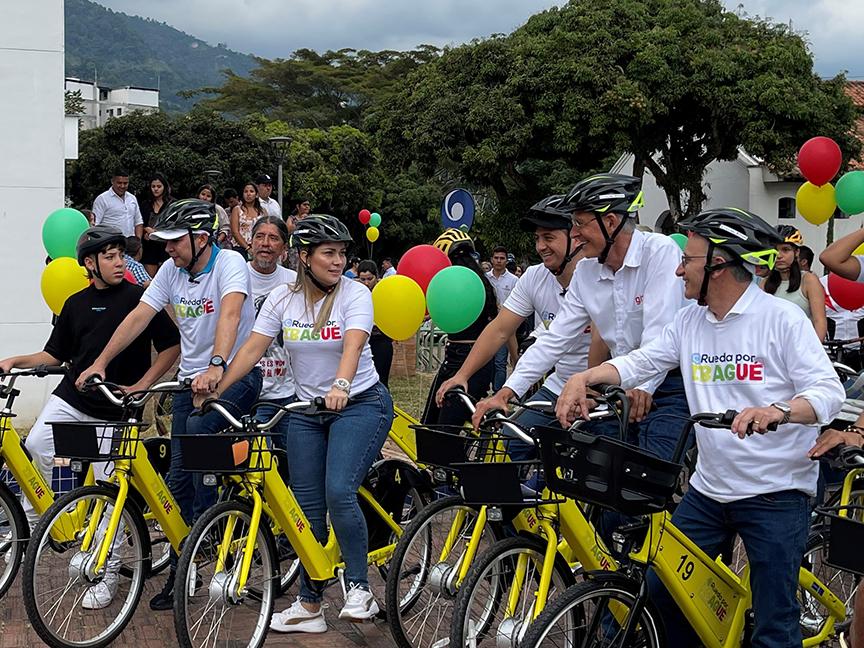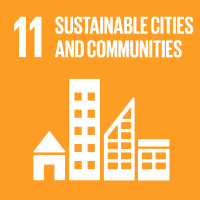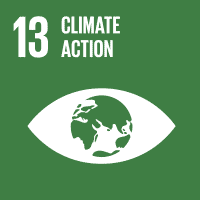Urban mobility is just one sector of the Euroclima programme, which is funded by the German Federal Ministry for Economic Cooperation and Development (BMZ) and the European Union. It aims to reduce the impact of climate change and promote adaptation in 33 countries in Latin America and the Caribbean. Other key sectors include climate-resilient food security, conservation of biodiversity and climate-friendly energy systems.
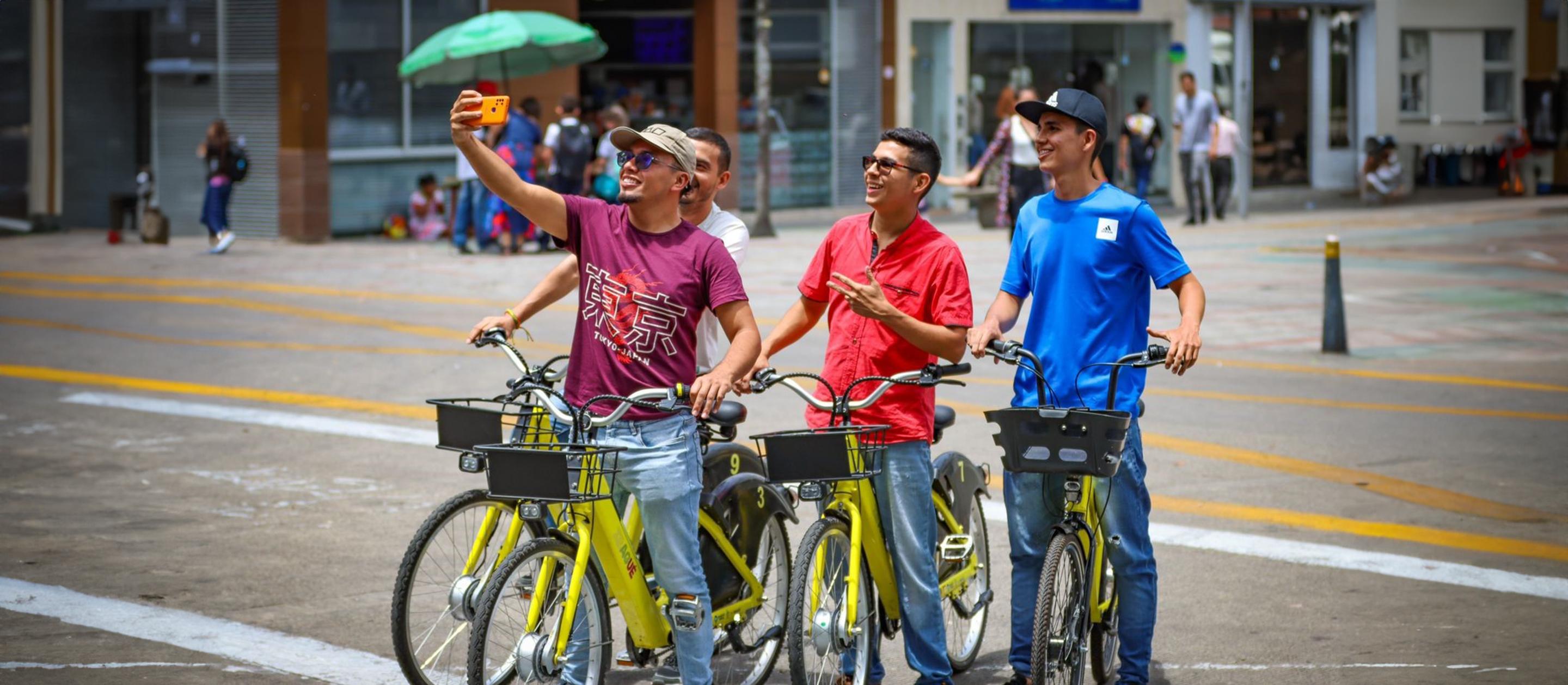
Ibagué turns to pedal power
Away from the major metropolitan areas of Latin America, one city in Colombia is leading the way to social and climate-friendly mobility with a free public bicycle share scheme that illustrates how the city is on the right track to achieving UN Sustainable Development Goal 11 – Sustainable cities and communities.
At first glance, Ibagué’s mobility revolution seems modest: neon yellow, sturdy, a basket at the front. This city in central Colombia has made 85 cycles and e-bikes available to the public since the start of 2023.
‘With the introduction of this public bicycle share scheme, we are starting to look for alternatives that allow us to get around town in a way that is environmentally responsible and – above all – free of charge,’ said Andrés Hurtado, the city’s enthusiastic mayor, at the inauguration of the eight bicycle stations.
Ibagué is the capital of Tolima, the department that borders the eastern slopes of Colombia’s Cordillera Central, a branch of the Andes. With a population of around half a million, the city is at most medium-sized by Colombian standards. Until now, only large metropolitan areas like Medellín or Bogotá have introduced public bicycle share schemes. But all that is changing thanks to a partnership with the Euroclima programme, which promotes climate action in Latin America.
Euroclima focuses its attention where local partners see the greatest need. In Guatemala, it was electric rickshaws. In Chile, the programme supported a nationwide strategy for sustainable mobility. And in Ibagué, Colombia, the people wanted public bikes.
Cycling legends from Colombia
Colombia has produced many world-class cyclists, including Nairo Quintana and Egan Bernal, the first South American to win the Tour de France and wear the yellow jersey across the finish line in Paris. And on their days off, amateur Colombian cyclists take to their road bikes in the thousands to climb the Andean asphalt. But as a mode of transport for everyday life, there is still scope for improvement.
According to the World Bank, eight out of ten people in Latin America live in cities – and these cities are proliferating. Infrastructure cannot keep pace. Good public transport requires planning, time and money – three things that are often in short supply.
Ibagué is a case in point. Instead of an integrated municipal bus system, several private companies operate in the city, which means passengers have to pay every time they change bus. This makes public transport both expensive and inefficient. And some parts of the city are not connected at all. The city administration is working on an improved bus system – but in the meantime many citizens are dependent on cars and motorcycles.
The public bicycle share scheme is designed to address this issue for shorter journeys – and to raise the popularity of cycling in general. The bike stations are strategically located in the city centre – convenient for shopping and administrative formalities. Parks, museums and bus stations are also within easy reach.
And the scheme is unusual in another respect: it has a social dimension. The service is free of charge and e-bikes have been purchased for use by pregnant women and senior citizens. In addition, the city opted for local expertise to develop the mobile phone app for users of the bike share scheme.
Euroclima supported Ibagué with the technical, legal and financial issues. These were not inconsiderable. Where to locate the stations? Which authorities to involve? What type of bicycles to provide? What kind of loan system to put in place? The programme also shouldered the cost of the cycles, stations and app.
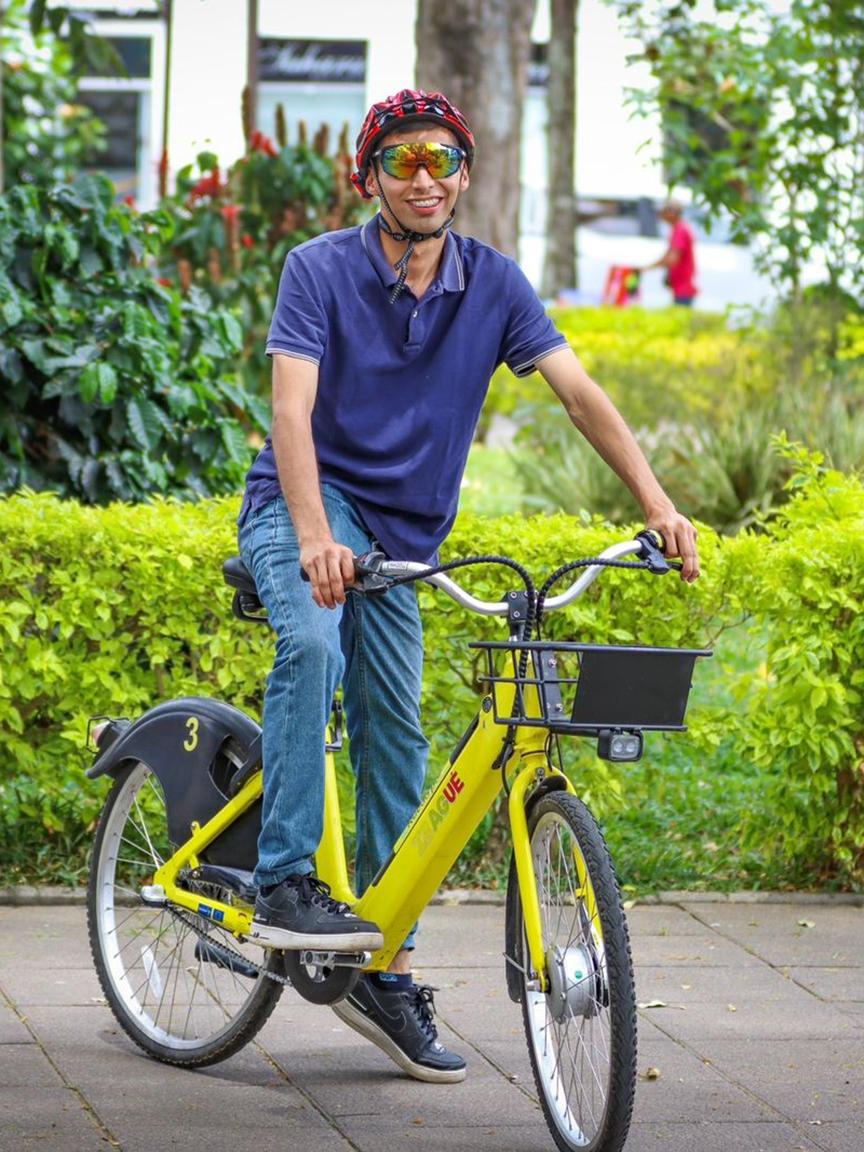
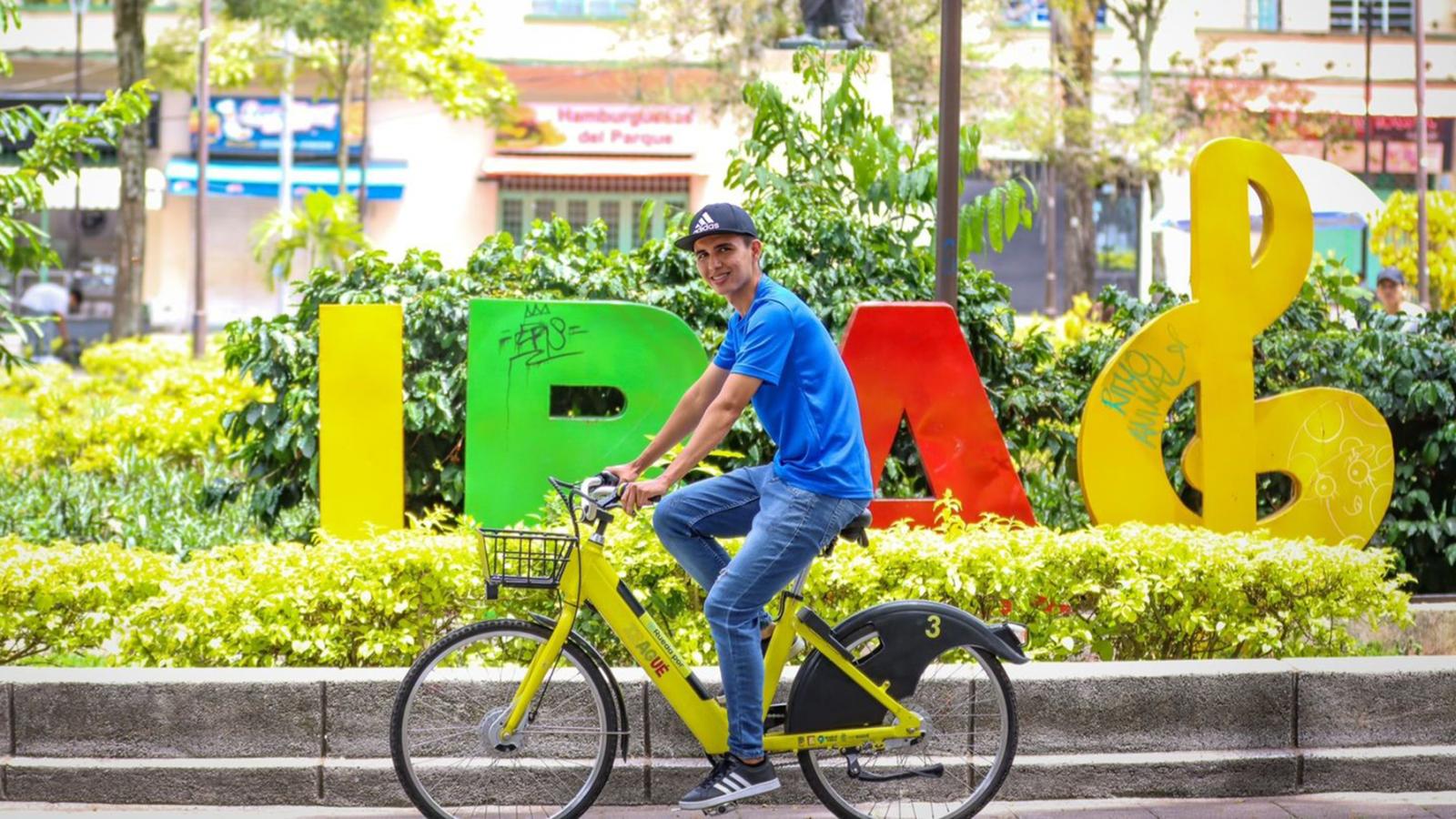
Pilot project points the way
The city initially took care of software development, as well as any formalities required by the local administration and city council. Since then, it has taken over the ongoing operating costs of the public bicycle share scheme. If the system proves successful, further stations will be added to the network in Ibagué. It is also hoped that the pilot project will help other cities to set up public bicycle share schemes of their own.
‘Latin America as a whole has made great strides with sustainable mobility,’ says Alejandro Ceballos, a technical advisor at GIZ. The Colombian explains that the region is now the second-largest market for electric buses after China. But this is thanks mainly to metropolitan regions such as Bogotá or Santiago de Chile.
Despite this, public transport can no longer keep pace with demand in the expanding cities. So in a country where owning a car is considered a status symbol, the steadily increasing number of motorcycles and cars pollute the air as they stand in gridlocked traffic. ‘We need to dismantle this culture of individualism and develop a more collaborative way of thinking,’ says Alejandro Ceballos.
Ibagué has been a shining example in this respect. The city administration has developed a communication strategy to create a new culture. And it seems to be paying off. ‘People in Ibagué are proud of their bicycles,’ says Alejandro Ceballos. In just six months, 2,300 residents have signed up to the scheme. Now they’re using pedal power to save the planet and money at the same time.
